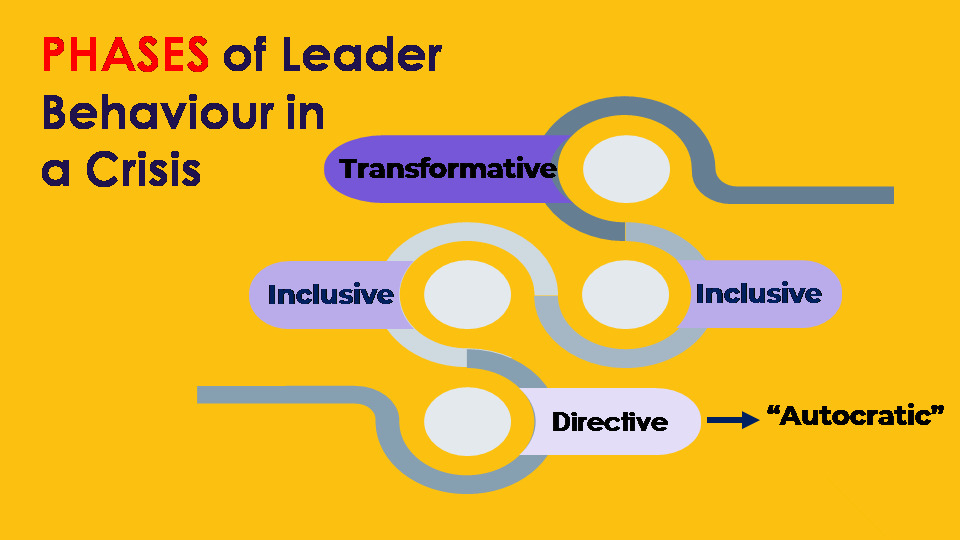


As a result of the uncertainty caused by the COVID-19 pandemic, almost all organizations and businesses have experienced difficulties. At times like this, the role of a leader becomes very important to ensure the security and welfare of its employees. This was discussed by Maria Jacinta Arquisola, MHRM., Ph.D., Dean of the Faculty of Business, who is also the HR Specialist in President University Webinar Series 2020: Business Insights that was held last Wednesday (5/13).
In her session, Maria Jacinta Arquisola, MHRM., Ph.D., explained 3 phases of leadership in a crisis, namely directive, inclusive, and transformative. In the first phase, a leader will try to control the flow of communication as effectively as possible and dare to make a firm decision. In times of crisis, a leader also needs to shorten the bureaucracy and form a technical team specifically to overcome the crisis.
From a directive leader, a leader will turn into an inclusive leader when the new foundations are formed. At this time, leaders will begin to pay attention to the safety and welfare of their employees. A leader is easily found to listen directly to the aspirations of the employees. This shows their concern and empathy for employees.
"The combination of these two leaderships will be very important in a crisis situation. A firm leader and an empathetic, caring, and loving leader," said Jacinta. Research says, this kind of leadership will improve employee performance, the quality of decision making, and team collaboration to be good.
Even so, in the face of this crisis, transformative leadership is considered to be the most suitable to be applied after the crisis. Jacinta said, “Transformative leaders must be visionary. But, to make sure your organization will meet the vision, you need to design a crisis-ready organization.” Some of the steps are preparing the structure, preparing the rules/policies, preparing the human resources, which will lead to a change in mindset from all parties so that they are ready to face a crisis.
Jacinta said that the challenge was not only felt from the industry aspect but from the employee side. How many things concern the majority of employees, including the lack of direct supervision (face to face), the lack of knowledge of technology to support activities at home, and distraction when working at home. In addition, working at home can cause stress which results in decreased quality of life and will certainly affect work performance. Therefore, Jacinta emphasized that the role of the leader was very important during this crisis so that businesses and employees could survive and resume operations as usual after the pandemic ended. Aside from Jacinta, Prof. Dr. Jony Oktavian Haryanto, the Rector of President University also shared his insights on Marketing in the Times of Crisis in the second session of the webinar. (SL/GG)
Kepemimpinan dalam Situasi Krisis: Pemimpin yang Inklusif dan Kesejahteraan Karyawan
Akibat ketidakpastian yang ditimbulkan oleh pandemi COVID-19, hampir semua organisasi dan bisnis mengalami kesulitan. Di saat seperti ini, peran seorang pemimpin menjadi sangat penting memastikan keamanan dan kesejahteraan karyawannya. Hal ini dibahas oleh Maria Jacinta Arquisola, MHRM., Ph.D., Dekan Fakultas Bisnis, yang juga adalah HR Specialist dalam President University Webinar Series 2020: Business Insights yang kembali hadir Rabu lalu (13/5).
Dalam sesinya, Maria Jacinta Arquisola, MHRM., Ph.D., memaparkan 3 fase kepemimpinan dalam sebuah krisis, yaitu direktif, inklusif, dan yang terakhir transformatif. Di fase yang pertama, seorang pemimpin akan berusaha mengontrol alur komunikasi seefektif mungkin dan berani mengeluarkan keputusan yang tegas. Di masa krisis, seorang pemimpin juga perlu mempersingkat birokrasi dan membentuk tim teknis secara khusus untuk mengatasi krisis.
Dari seorang pemimpin yang direktif, seorang pemimpin akan berubah menjadi pemimpin yang inklusif saat dasar-dasar yang baru setelah telah terbentuk. Di masa ini, pemimpin akan mulai memperhatikan keamanan dan kesejahteraan karyawannya. Seorang pemimpin mudah ditemui untuk mendengarkan secara langsung aspirasi dari para karyawan. Hal ini menunjukkan kepedulian dan empatinya terhadap karyawan.
“Kombinasi dari kedua kepemimpinan ini akan menjadi sangat penting dalam situasi krisis. Seorang pemimpin yang tegas sekaligus seorang pemimpin yang empatik dan penyayang,” ujar Jacinta. Penelitian menyebutkan, kepemimpinan semacam ini akan meningkatkan performa karyawan, kualitas pengambilan keputusan, serta kolaborasi tim menjadi baik.
Meski begitu, dalam menghadapi krisis ini, kepemimpinan transformatif dianggap menjadi yang paling cocok untuk diterapkan pasca krisis. Jacinta menyebutkan, “Seorang pemimpinan transformative harus seseorang yang visionaris. Namun, untuk memastikan organisasinya mencapai visi tersebut, seorang pemimpin perlu merancang organisasi yang siap menghadapi krisis.” Beberapa langkahnya adalah persiapkan struktur, persiapkan peraturan/policies, persiapkan sumber daya manusianya, yang akan berujung pada perubahan mindset dari semua pihak sehingga siap menghadapi krisis.
Jacinta menyebutkan, tantangan tidak hanya dirasakan dari aspek industri, melainkan dari sisi karyawan. Berapa hal yang menjadi kekhawatiran sebagian besar karyawan diantaranya, tidak adanya supervisi secara langsung (face to face), kurangnya pengetahuan akan teknologi pendukung kegiatan bekerja di rumah, dan distraction saat bekerja di rumah. Selain itu, bekerja di rumah dapat menimbulkan stress yang berujung pada penurunan kualitas hidup dan tentunya akan mempengaruhi performa bekerja.
Untuk itu, Jacinta menekankan, peran pemimpin menjadi sangat penting di masa krisi ini sehingga bisnis dan karyawan dapat bertahan dan kembali beroperasi seperti biasa setelah pandemi berakhir.